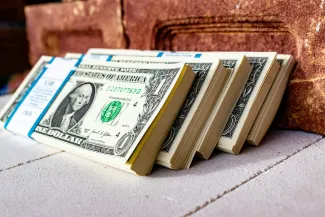
Financial Independence: What It Really Means and How to Get There
As Independence Day approaches, it's a perfect time to reflect not just on our nation's freedom—but on your personal financial independence. What does it really mean to be financially independent? And more importantly, how do you get there?
Financial independence isn't about being rich. It's about having the freedom to make life choices without being overly burdened by financial stress. Whether that means retiring early, starting a business, traveling the world, or simply feeling secure in your daily expenses, achieving financial independence is about control, not just wealth.
1. Define What Financial Independence Means to You
Everyone's version of financial independence is different. For some, it's early retirement. For others, it's paying off debt or building passive income. Start by answering these:
- What would you do if money weren't a concern?
- What lifestyle do you want in 5, 10, or 20 years?
- How much do you need to support that lifestyle?
2. Know Your Numbers
Understanding your current financial picture is essential. Key metrics to review include:
- Monthly expenses and income
- Net worth (assets minus liabilities)
- Debt-to-income ratio
- Savings rate
This baseline will help you set realistic goals and measure progress.
3. Create a Plan and Automate It
Once you know where you are and where you want to go, build a plan to bridge the gap:
- Budgeting: Track spending and cut unnecessary costs
- Saving: Aim to save at least 20% of your income, more if you want to retire early
- Investing: Use retirement accounts (401(k), Roth IRA) and taxable accounts to grow wealth
- Debt reduction: Pay down high-interest debt aggressively
Automation helps make good habits stick—set up recurring transfers to savings and investments.
4. Build Multiple Streams of Income
Relying on a single income source can be risky. Diversify by:
- Starting a side hustle or freelance work
- Investing in dividend-paying stocks or real estate
- Creating digital products or content with long-term earning potential
Multiple income streams provide flexibility and resilience on the road to independence.
5. Protect What You’re Building
Financial independence also means protecting your progress:
- Emergency fund: 3–6 months of expenses
- Insurance: Health, life, disability, and property coverage
- Estate planning: Wills, powers of attorney, and beneficiary designations
Final Thought
Financial independence doesn't happen overnight. It requires intention, discipline, and long-term planning. But the payoff is real freedom—the kind that lets you live life on your own terms. As we celebrate freedom this July, take a moment to commit to your own financial independence. If you'd like guidance, now is a great time to talk through a personalized plan.

